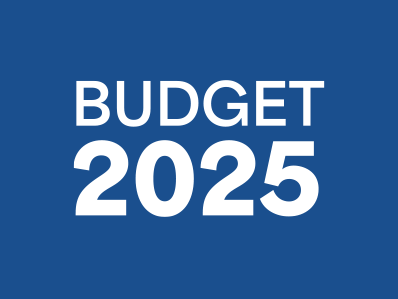
Early in my life I worked as the accountant at what is now called Ara. One year, as I attempted to balance the budget of a rapidly growing institution with expanding financial demands, I cut the budget of the library. One of the Tuesday club regular attendees will recall this event. The librarian was a passionate woman who defended her staff and budget vigorously. She started wearing only black clothes and refused to sit near me at morning and afternoon tea. The war of words became so strong that eventually the deputy director of the institute intervened, and peace was negotiated over a (very) small sherry in the boardroom.
The budget was restored, and my personal lesson was not to just see things through a financial lens, but to also balance my financial training with the ramifications of them on the real world. When I apply a lifetime of working around finance my opinion of this government’s budget is that it has lots of hidden cuts and essentially is mean spirited, just as I was with my library budget.
The only person who was honest about the budget was David Seymour when he crowed that the rushed legislation on the Equal Pay Amendment Act had saved the budget. I detest his motives, but I applaud his honesty. All the excuses by the Minister of Finance and the Prime Minister about the need for this black souled Act made as much sense as arguing that the sun won’t rise tomorrow.
I am surrounded by individuals who work closely within the health sector, community sector, small business sector, and local government. In every one of these areas frontline workers are reporting vicious cutbacks in funding for community agencies. I’m not sure whether those who are making budget calls in Wellington feel for their regional colleagues as they have to report to their community agencies staff and cut their funding off.
In the Press on Friday there was this article https://www.thepress.co.nz/nz-news/360694188/most-people-declined-emergency-housing-social-services-say. In the article Jill Hawkey of the Methodist Mission said, after the government had praised themselves for reducing the numbers of people in emergency housing by 75%, that her observation was:
“the majority of people they help have been turned away from emergency housing – without being given a reason.
“We could count on one hand the number of people who have been offered emergency housing,” she said.
“Chris Bishop said in an interview that if people are homeless they could go to the Ministry of Social Development (MSD) and housing support would be available to them… we know that’s not true.”
Jill continued:
[that]there was “no doubt,” there had been an increase in homelessness. Often people were in dangerous situations, such as women who were forced to exchange sex for housing.
“There are some real mixed messages, what’s being said at higher levels and what’s happening at the frontline are very different. People aren’t getting into emergency housing.”
When asked by the Press about emergency housing grants the MSD general manager of housing Karen Hocking replied:
Emergency housing is a last resort. If someone who applies is eligible for a different and more suitable type of support, we will provide that instead. If they have another housing option available, we expect them to take it.
“If someone is not eligible for emergency housing, we have a wide range of other housing support they may be eligible for instead.”
When The Press asked for the number of applications that had been declined for emergency housing. MSD said the information was “not centrally collated” and had to be requested under the OIA. I wonder if Ms Hocking, or her Minister, have bothered to talk to a homeless person and enquired how they got to where they are now. It might do them good to have a slice of humble pie.
Reflecting on what the Ombudsman wrote in his last days in office about government departments using OIA’s as a weapon to basically hide the facts. This response by MSD above drives home that this budget might have a sinister sub-agenda to punish the poor and disadvantaged in our communities.
Here’s an article some time back which highlighted the evil nature of how this government is treating our most vulnerable citizens Part of MSD programme to prevent people ending up in emergency housing scrapped | RNZ News
In this article on Friday in Newsroom School lunches joined atop Budget’s fiscal cliffs – Newsroom
Among the new spending in health and education, as well as the high-profile cuts from the pay equity law changes and KiwiSaver cuts, are a series of “time-limited funding” initiatives – read: fiscal cliffs.
Tens of millions of dollars in time-limited funding is spread between kids’ breakfasts, domestic movie rebates, New Zealand Qualifications Authority funding and school lunches, among other areas, but looming over them all is the fiscal cliff of school lunches, with an annual cost of $239 million running only until 2027.
Yes, our kids most in need with support like school lunches aren’t assured of this important program continuing.
The Government required the media to stare superficially at their budget. However, I suspect that the budget cuts for the curtailed programs of support for the poor and vulnerable will slowly surface over the next few months.
We must contemplate that there are over 9000 young people under 25 out of work in this city right now. That is the seed bed for long term societal problems with mental health, drugs, violence etc. The advocates for these young people are all of us. At city council level there seems to be the silent response expected of stunned mullets.
I remember the Library standoff at Ara well.!I think we all learnt from that experience. Garry, you can forgive yourself we were all very young! ( Just don’t ever mince with a librarian)
Penny
MSD has evidently not read the OIA if it answers verbal(?) requests by responding that information had to be requested under the OIA.